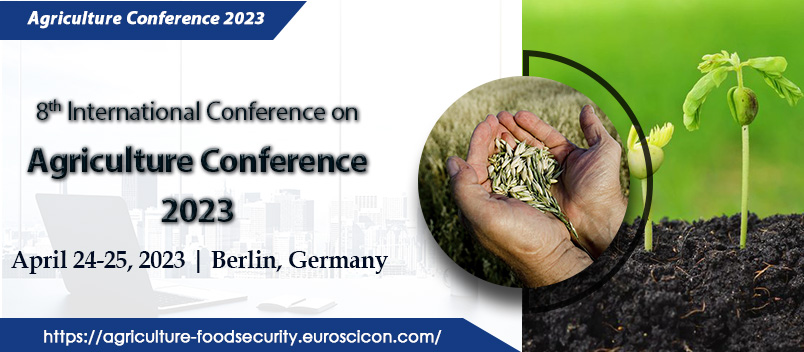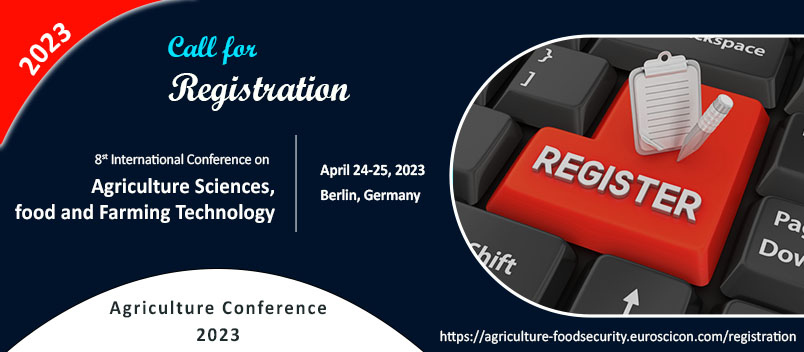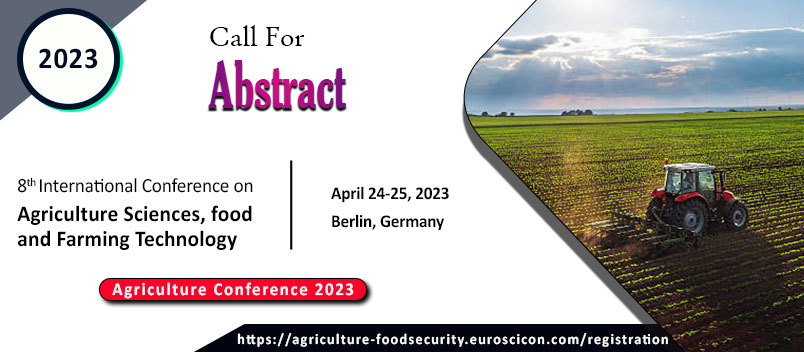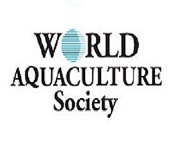Agriculture Conference 2023
About Conference
ABOUT CONFERENCE:
We are delighted to invite you to attend "8th International Conference on Agriculture Sciences, Food and Farming Technology" which is going to be held during April 24-25, 2023 at Berlin, Germany. This revered conference will be focusing on the theme“Advancing the Bio techniques & Scientific Research into Agriculture Sciences”which extensively explores new trends in the field of Agriculture and Food.
Agriculture-Food Security-2023 meeting is going to be a dynamic platform and the renowned researchers of the world would gather to enlighten the arising issues, innovations and integrated approaches towards the newly evolving Agriculture practices. Know about the present scenario of agriculture is the need of time because of its direct influence on the environment and eventually on the living beings.
This is the best opportunity for an interaction with participants from the plant Genomics associations, plant science societies, Horticulture, Forestry, Agriculture, Agronomy, Plant Genomics Academicians. It provides reporting and learning about the latest research on plant management and other relevant to plant Genomics, as well as for launching new applications and technologies and the effectiveness of various regulatory programs on Plant management & Conduct presentations, share knowledge, meet with current potential and eminent scientists, and receive name recognition at this two days event.
Our aim is to aggregate community and to create a platform for exchange of information on technological developments, new scientific innovations, trends in agricultural practices and the effectiveness of various regulatory programs through this conference. It provides a premier technical forum for expressing and learning about the advanced research and developments, as well as for launching new applications, technologies and to explore new trends in the field of plant Genomics.
Target Audience:
• Academicians
• Researchers
• Pedologists
• Agronomists
• Geologist
• Students (Post graduates, Doctorates)
• Agricultural Advisors
• Plantation Companies
• Agricultural Consultants
• Private sectors
So come and reunite with the leading experts and allied professionals on April 24-25, 2023 in Berlin, Germany to discuss the ways to develop new technologies that will renew Agriculture Sciences.
Sessions And Tracks
SESSIONS & TRACKS
Track 01: Agriculture Engineering
Agriculture conferences focus on the topic Agriculture Engineering. Agricultural Engineering is developed to make advances in sustainable agriculture which is totally eco-friendly. By the middle of the 20th century, Agricultural Engineering evolved into four types of activity like Power and machinery, Irrigation and drainage, Farm structures and environment, Processing and electrification. Most Agricultural Engineering focused on biological engineering, efficient use of irrigation water, renewable energy and environmental issues. Agricultural Engineering is facing three great challenges: Food safety and Food security, protecting the species and natural resources and reduced employment status. Agricultural Engineering is focused on engineering skills and technologies that take a strong approach to current problems. Food security and crop production will be much stronger if Agricultural Engineering can be developed appropriately.
- Agricultural Advanced Machines
- Agricultural resource management
- Polymer in agriculture
- Agricultural machinery
- Nanotechnology in agriculture
- Bioinformation system
- Precision farming, Remote Sensing and Agri GIS
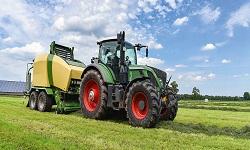
Track: 02 Livestock Farming Technology
The traditional livestock industry is a sector that is widely overlooked and under-serviced, although it is arguably the most vital. Livestock provides much needed renewable, natural resources that we rely on every day. Livestock management has traditionally been known as running the business of poultry farms, dairy farms, cattle ranches, or other livestock-related agribusinesses. Livestock managers must keep accurate financial records, supervise workers, and ensure proper care and feeding of animals. However, recent trends have proven that technology is revolutionizing the world of livestock management. New developments in the past 8-10 years have made huge improvements to the industry that make tracking and managing livestock much easier and data-driven. This technology can come in the form of nutritional technologies, genetics, digital technology, and more.
Livestock technology can enhance or improve the productivity capacity, welfare, or management of animals and livestock. The concept of the ‘connected cow’ is a result of more and more dairy herds being fitted with sensors to monitor health and increase productivity. Putting individual wearable sensors on cattle can keep track of daily activity and health-related issues while providing data-driven insights for the entire herd. All this data generated is also being turned into meaningful, actionable insights where producers can look quickly and easily to make quick management decisions.
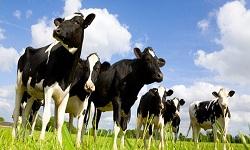
Track: 03 Plant Genetics and Epigenetics
Plant Genetics qualities assume a key job in the cutting edge hypotheses of heredity. There are different present day methods to grow hereditarily change plants, hereditarily built harvests. Epigenetics is the trading between the heredity and the earth through atomic components (DNA methylation, quality quieting, fluorescent in situ hybridization).
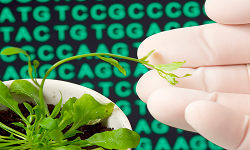
Track: 04 Plant Synthetic and Weed Biology Control
Plant Synthetic Science is a developing field that consolidates building standards with plant science toward the structure and generation of new gadgets. This developing field should assume an essential job in future horticulture for customary harvest enhancement, yet in addition in empowering novel bio production in plants.
The study of the establishment, growth, reproduction, and life cycles of weeds .It is concerned about the foundation development generation and spread or dispersal of weeds and in addition impact of condition on these procedures.
The exploration of weed science is imperative with a view to comprehend the survival system of weeds and their adjustment to exasperates soil condition, impact by ecological factors on circulation of weed species and attributes of weed that empower them to rival crops.
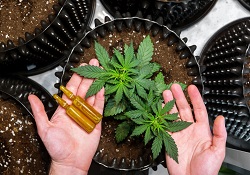
Track 05: Agriculture & Food Security
Agriculture conference focuses on the topic food security and welcomes to all person who related to food security. A policy orientation for food security and safety include state-wise, previous, current and future policy issues, and cope-wise sustainability of agriculture. The particular part of food distribution in our society can be examined through the research of the changes in the food supply chain. Globalization, in particular, has significant effects on the food supply chain by validating scale effect in the food distribution industry. Provision of an adequate amount of essential nutrients to human beings has ever been the challenge in the province of food security. Hence, malnutrition is heavily interlinked to food security consideration, yet difficult to be eliminated. food security and policy, therefore, become magnetic in the province of research.
- Food and nutrition security
- Sustainable intensification of food production systems
- Innovative ways of feeding increasing population
- Food storage and technology
- Fermentation Technology and Cereals
- Food packaging technology
- Post-Harvest Handling and Processing

Track 06: Agricultural Sciences
Agricultural science manages the advances in hereditary qualities, physiology, organic chemistry, biophysics, and sub-atomic science. Agriculture concerns procedures, including the. Use of agronomic research Farming biotechnology is a particular region of agrarian science including the utilization of logical instruments and procedures, including hereditary building, atomic markers, sub-atomic diagnostics, antibodies, and tissue culture, to alter living beings: plants, creatures, and microorganisms Agriculture is the development of creatures, plants, parasites and other life shapes for nourishment, fibres, and different items used to support life. Agribusiness was the key actualize in the ascent of inactive human progress, whereby cultivating of trained species made sustenance surpluses that supported the advancement of development.
The investigation of agriculture is known as agrarian science. The historical backdrop of agriculture goes back a huge number of years, and its improvement has been driven and characterized by extraordinarily unique atmospheres, societies, and innovations. Nonetheless, all cultivating for the most part depends on systems to grow and keep up the terrains reasonable for raising trained species. For plants, this generally requires some type of water system, despite the fact that there are strategies for dry land cultivating; peaceful crowding on rangeland is as yet the most widely recognized methods for raising domesticated animals. In the created world, mechanical horticulture dependent on huge scale monoculture has turned into the predominant arrangement of current cultivating, in spite of the fact that there is developing help for supportable agribusiness.
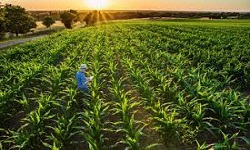
Track 07: Regenerative Agriculture
The loss of the world’s fertile soil and biodiversity, along with the loss of indigenous seeds and knowledge, pose a mortal threat to our future survival. According to soil scientists, at current rates of soil destruction (i.e. decarbonisation, erosion, desertification, chemical pollution), within 50 years we will not only suffer serious damage to public health due to a qualitatively degraded food supply characterized by diminished nutrition and loss of important trace minerals, but we will literally no longer have enough arable topsoil to feed ourselves.
The key to regenerative agriculture is that it not only “does no harm” to the land but actually improves it, using technologies that regenerate and revitalize the soil and the environment. Regenerative agriculture leads to healthy soil, capable of producing high quality, nutrient dense food while simultaneously improving, rather than degrading land, and ultimately leading to productive farms and healthy communities and economies.
It is a dynamic and holistic, incorporating permaculture and organic farming practices, including conservation tillage, cover crops, crop rotation, composting, mobile animal shelters and pasture cropping, to increase food production, farmers’ income and especially, topsoil.
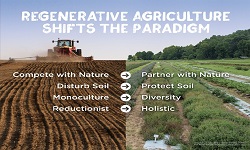
Track 08: Plant Breeding and Molecular Breeding
Plant Breeding is the methods which are utilized for sub-atomic science to choose, or on account of hereditary change, to embed attractive characteristics into plants. Sub-atomic rearing, for example, marker helped choice and multiplied haploids are exceptionally valuable systems. There is plausibility that through plant reproducing can likewise use by natural development.
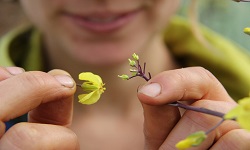
Track 09: Plant Science Research and Natural Products
Plant-determined (Botanical) Ingredients were among the simple first enhancing agents. Common colorants, plant juices for mitigating and security from creepy crawly bothers, and fragrant oils for bestowing aroma were altogether utilized in antiquated occasions. Generally, plants were the best way to deliver items for cleaning, saturating, concealing flaws and notwithstanding treating minor skin conditions.
Natural items are set up by natural combination, and have assumed a focal job to the advancement of the field of natural science by giving massively difficult targets and issues for engineered technique and strategies. Alkaloids are created by an extensive assortment of living beings, including microbes, parasites, plants, and creatures, and are a piece of the gathering of all regular and natural makeup.

Track 10: Crop Research and Seed Science Technology
Crop research might be characterized as action coordinated to making the generation, promoting and utilization of business Crops more proficient and gainful. Consequently, edit research may include any or the majority of the accompanying: Plant Breeding, plant physiology and Biochemistry, trim assurance, social administration, stockpiling techniques research and preparing and items thinks about. The significance of plant rearing in the adjustment of yield plants to Canadian conditions is treated in a different article. Understood victories incorporate Marquis Wheat, Triticale, Canola and Lentils. Yields incorporate grain and Oilseed Crops, Forages, claim to fame crops, Vegetables, Fruits and Ornamentals.
Seed science is the analysis of the structure and advancement of seeds from the snapshot of treatment of the egg cell on the maternal plant until the point that arrangement of another plant from the seed. Seed science is partitioned into two segments carpology, studies the seeds and products of wild plants, and the other area thinks about the seeds of developed plants. Seed science is the hypothetical premise of seed growing. Agricultural seed science additionally expounds techniques for assessing and controlling seed material. The science is firmly associated with herbal science, natural chemistry, hereditary qualities, and other organic sciences.
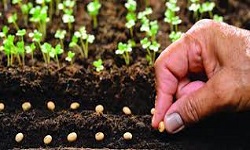
Track 11: Crop protection & Entomology
Crop protection is the study and practice of managing pests, plant diseases, weeds and other harmful organisms that damage agricultural crops and forestry and thus affect the economic value and agri-market.
Entomology is the scientific study of insects, a branch of zoology. In the past the term "insect" was more vague, and historically the definition of entomology included the study of terrestrial animals in other arthropod groups or other phyla, such as arachnids, myriapods, earthworms, land snails, and slugs.
- Insect Science
- Pest/Disease management, Integrated pest management
- Biotechnology-based approaches
- Application of Taxonomy
- Biological pest control
- Barrier-based approaches
- Pollinators
- Weed Science

Track 12: Food Science
Agriculture conference focusses on the subject Food Science. The study of the physical, chemical and biological make up of food and food ingredients encompasses a stream called food science. The applied form of this makes various branches like its selection, preservation, processing, packaging, distribution, and use of safe food. In the due course of evolution the obligation of professionals working in the field of food science and technology is immense contributing in the making of healthier human beings and ensuring continual and abundant supply of food ingredients.
- Food engineering
- Food chemistry
- Food & nutrition
- Food technology
- Food microbiology
- Food packaging
- Food nutrients
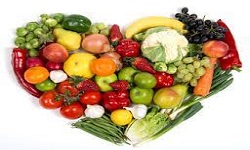
Track 13: Soil science and Soil-Plant Nutrition
The plants require water and minerals originate from the dirt, while carbon dioxide originates from the air. Macronutrients and Micronutrients are the fundamental components required by plants. Soil quality is a noteworthy determinant of plant circulation and development. Nitrogen is frequently the mineral that has the best impact on plant development. Plants require nitrogen as a segment of proteins, nucleic acids, chlorophyll. Natural nitrogen obsession (BNF) happens when air nitrogen is changed over to smelling salts by a catalyst called nitrogenise. Soil science is the investigation of soil as a characteristic asset on the surface of the Earth including soil development, order and mapping and soil disintegration.
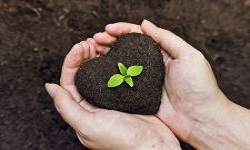
Track 14: Fertilizer and Pesticide
Agriculture conference focusses on fertilizer which is any material of natural or synthetic origin that is applied to soils or to plants tissues to supply one or more plant nutrients essential to the growth of plants. Fertilizers enhance the growth of plants. This goal is met in two ways, the traditional one being additives that provide nutrients. The second mode by which some fertilizers act is to enhance the effectiveness of the soil by modifying its water retention and aeration.
Pesticides are substances meant for attracting, seducing, and then destroying, or mitigating any pest. They are a class of biocide. The most common use of pesticides is as plant protection products (also known as crop protection products), which in general protect plants from damaging influences such as weeds, plant diseases or insects. This use of pesticides is so common that the term pesticide is often treated as synonymous with plant protection product, although it is, in fact, a broader term, as pesticides are also used for non-agricultural purposes. Agriculture conference provides an opportunity to researchers and scientist to explore the advanced and latest research developments in the field of Fertilizer and Pesticide.
- Single nutrient fertilizers
- Multinutrient fertilizers
- Biofertilizers
- Environmental effects of fertilizers
- Health effects of pesticides
- Insecticides
- Herbicides
- Biopesticide
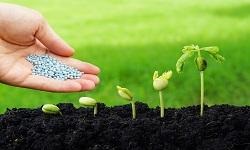
Track 15: Agronomy & Crop Science
Agronomy is the science of production and utilization of plants for multidisciplinary use along with soil, crop and water management. Agronomy related to work in the areas of plant genetics, plant physiology, Agrometeorology, and soil science. Agronomy is the application of combined sciences like biology, chemistry, economics, ecology, earth science, and genetics. Agronomy is now an important research field for scientists to study the behavior of plant in different environmental conditions including climate, soil type and irrigation, fertilization etc.
Crop Science and Technology is the field dealing with the Selection, Breeding, Crop productivity, Seed production,Organic crops, Crop technology transpiration, Field crops research, and Crop and Irrigation technology. Crop sciencedeals with food, feed, turf, and fibre crops and their management. It is a broad field includes breeding, genetics, production, and management of crops and animal feed. Crop science also takes part in conservation and sustainable use of genetic resources of plants, insects and other invertebrates, and microorganisms.
- Organic Farming
- Efficient crop production
- Seed technology
- Forage crop & grass science
- Crop genetics and breeding
- Physiology and ecological research on herbs
- Ecology
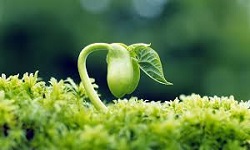
Track 16: Agricultural Production Systems & Agribusiness
Agriculture conference focuses on the topic agribusiness. Agribusiness is the business of agricultural production. It includes agrichemicals, breeding, crop production distribution, farm machinery, processing, and seed supply, as well as marketing and retail sales. All agents of the food and fiber value chain and those institutions that influence it are part of the agribusiness system.
Within the agriculture industry, "agribusiness" is used simply as a portmanteau of agriculture and business, referring to the range of activities and disciplines encompassed by modern food production. There are academic degrees in and departments of agribusiness, agribusiness trade associations, agribusiness publications, and so forth, worldwide.
Agricultural productivity is measured as the ratio of agricultural outputs to agricultural inputs. While individual products are usually measured by weight, their varying densities make measuring overall agricultural output difficult. Therefore, the output is usually measured as the market value of final output, which excludes intermediate products such as corn feed used in the meat industry. This output value may be compared to many different types of inputs such as labour and land (yield). These are called partial measures of productivity.
Agricultural Economics covers a wide array of issues from development, trade, macroeconomics policy implications, agribusiness, production and consumption all the way to environmental and resource issues
- Sustainable agriculture
- Agricultural Economics
- Crop cultivation systems
- Final product-generating enterprises
- Agricultural Waste Management
- Agric Business And Financial Management
- Corporate farming
- Women in Agribusiness and Rural Development
- Conference Image
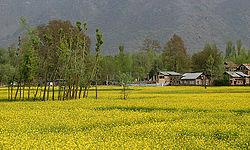
Track 17: Greenhouse & Horticulture
A greenhouse is a structure with walls and roof made chiefly of transparent material, such as glass, in which plants requiring regulated climatic conditions are grown. These structures range in size from small sheds to industrial-sized buildings. A miniature greenhouse is known as a cold frame. The interior of a greenhouse exposed to sunlight becomes significantly warmer than the external ambient temperature, protecting its contents in cold weather. The primary crops grown in greenhouses include pepper, tomato, cucumber, lettuce, herbs, and strawberry.
Agriculture event focusses on horticulture that deals with the art, science, technology, and business of fruits, vegetables, flowers and ornamental plants. It includes production, improvement, marketing and scientific analysis of medicinal plant, fruits, vegetables, nuts, seeds, herbs, sprouts, mushrooms, algae, flowers, seaweeds and non-food crops such as grass and ornamental trees and plants. It also deals with species conservation, landscape restoration, landscape and garden design, management, and maintenance, research, and marketing. Horticulturists apply their knowledge, skills, and technologies to grow plants for human food and non-food uses like garden or landscape design, decorations etc. Their field also involves plant propagation and tissue culture to improve plant growth, diversification, quality, nutritional value, and resistance and adaptation strength to environmental stresses. Agriculture conference provides an opportunity to researchers and scientist to explore the advanced and latest research developments in the field of Horticulture.
- Fruit and vegetable breeding
- Arboriculture
- Turf management
- Seed physiology
- Greenhouses and horticulture
- Horticultural produce marketing and value chains
- Floriculture

Track 18: Agroforestry & Landscaping
Agriculture conference focusses on Utilization & Potential Applications- Agroforestry is an intensive study on a land management system that benefits biological interactions between forest trees or shrubs and agricultural crops and/or livestock. There are five basic types of agroforestry practices have been developed: windbreaks, alley cropping, silviculture, riparian buffers and forest and hill farming. Agroforestry helps to conserve species diversity and protect natural resources, reduce pollution, control soil erosion, and enhance wildlife biodiversity. The benefits of agroforestry include improvement of the growth of agro-economy and resource sustainability. Agroforestry practices also influence agroecosystem and diversification of endangered crop species. The greatest research need is to develop farm-level analyzes to increase potential economic costs, benefits which may reduce risks associated with agroforestry practices and increase the market value of products. Agriculture conference provides an opportunity to researchers and scientist to explore the advanced and latest research developments in the field of Agriculture & Forestry.
- Bonsai cultivation
- Biomass utilization
- Forest ecology & biodiversity
- Grassland and natural resource management
- Landscape restoration and agroforestry
- Applications of agroforestry: alley cropping, strip cropping, etc.

Track 19: Plant Science Biology and Environment Sciences
Biology and Environmental Science is a general comprehension of living beings, earth conditions, and the connection between them. Examines are centered particularly around morphogenesis of plant cells and organs, versatile reactions of plants to conditions, early improvement of creature foetuses, advancement of mind morphology in vertebrates, and neural premise of bug conduct.
The connections between living life forms and situations, and to explain the dynamic changes in the biosphere the examination field incorporates the accompanying subjects between particular or intra-particular associations between amphibian life forms, nature and advancement of microorganisms, material cycle in the sea-going biological community, and poisonous quality of synthetic toxins to living beings.
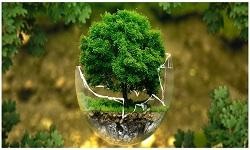
Market Analysis
MARKET ANALYSIS
Research in the field of plant sciences contribute directly to world’s economy and development. The results of this research are associated to many regions like agriculture, forestry, horticulture, and urban planning. The results of these researches are usually part of larger contributions which are beneficial and important for human being. Research on plants enhances our rational life and boosts our knowledge about other life processes. The results of research on plant science also tell us how to approach problems in agriculture, health, and the environment.
Importance & scope
People become depend more and more on plants as a direct source of the protein in their diet. There is an urgent need to diversify our agriculture and find new non- competitive crops that can be grown profitably by farmers.The agricultural research service now expending approximately $1.5 Million per year in the search for new crops for new uses. Many valuable plants cannot be held as seed but must be maintained by vegetative propagation. The agricultural research service is now making inventories of such stocks being held at various states. The new crops research maintaining approximately 25,000 clonal stocks of fruits. Biological seed treatment market was USD 739.3 Million in 2017 projected to reach USD 1,251.4 Million by 2023. The plant growth chambers market is projected to reach USD 485.6 Million by 2023 from USD 398.2 Million in 2017. Controlled- release fertilizers market is projected to reach USD 2.12 Billion by 2023 from USD 1.56 Billion in 2017. The plant growth regulators market is estimated to be valued at 2.11 Billion in 2017 and is projected to reach a value of USD 2.93 Billion by 2023. The global demand for plant growth regulators is increasing due to growing demand for organic food. Agricultural enzymes find wide applications in grains, oilseeds, pulses, vegetables, cerals and turf. The seed market is primarily driven by the consumption of its end products and is gaining awareness among the farmers.
The genetic supply industry will try to satisfy the growing demand by increasing the yield and quality of grain produced, possibly making an expanded acreage unnecessary. Yield increases over the past 45 years suggest that optimism is not unreasonable. During that time the population doubled, yield on the best land tripled, while acreage remained static. The feed-to-meat conversion efficiency also doubled, it now takes only 4 pounds of grain to produce 1 pound of pork, and further increases in this efficiency can be expected to contribute to future increases in productivity. Although it costs more to produce today’s high yields, wealth has increased faster than the costs. Food accounts for half as much of our income today (11%) as it did 45 years ago. Past gains in productivity were achieved by improved mechanization and agricultural chemicals, in addition to genetic improvements. Future gains will depend increasingly on genetics, with some sectors of the agricultural chemical industry being replaced by genetics (e.g., insecticides and fungicides). It is encouraging to note that at the same time productivity was tripling soil erosion per ton of food produced was cut by two-thirds.
Genomics will accelerate the application of gene technology to agriculture. As previously described, this technology will enhance food security, by increasing productivity, and food safety, by eliminating mycotoxins. There is a third benefit, derived from the first two: increased wealth. By accelerating the application of technology, genomics significantly increases the value of seeds and agricultural products. This increase adds much wealth to the customers, company owners, employees, and citizens of the nations in which genetic supply companies operate, and to both producing and importing nations whose food costs consequently are decreased.
Asia
Developing nations of Asia have come a long way since the food crises of the 1960s. Over the last 30 years, higher productivity gains have been achieved, thanks to agricultural technologies such as high yielding varieties of rice and wheat, chemical inputs, irrigation, and improved cropping systems. Between 1970 and 1995, per capita gross domestic product increased by 190%, cereal production doubled, and calorie availability per person increased by 24% (Asian Development Bank [ADB], 2001). In 1975, one out of every two Asians lived in poverty. By 1995, this ratio fell to one in four.
Many Asian governments—including China, India, Indonesia, Malaysia, Philippines, Thailand, and Vietnam—have given high priority to plant biotechnology research in the hope of addressing the pressing challenges related to improving productivity, farmers' livelihoods, driving rural development, and meeting food security demands.
USA
Decades of documented evidence demonstrates that agricultural biotechnology is a safe and beneficial technology that contributes to both environmental and economic sustainability. Farmers choose biotech crops because they increase yield and lower production costs. Farmers get a greater financial return while using more environmentally friendly farming practices through the use of agricultural biotechnology.
U.S. farm income benefits from 1996-2007 are estimated at nearly $20 billion resulting from enhanced productivity and efficiency gains from agricultural biotechnology.
Herbicide Reduction Biotech varieties have dramatically reduced farmers’ reliance on pesticide applications: Since 1997, the use of pesticides on global biotech crop acreage has been reduced by 790 million pounds, an 8.8 percent reduction. Biotech Crops: Evidence, Outcomes and Impacts 1996-2007: Focus on Environmental Impacts. PG Economics Ltd., UK.) Through biotechnology, more specialized herbicides have been replaced by a smaller number of safer, broad spectrum compounds with reduced environmental impacts.
Current challenges and future perspectives of plant and agricultural biotechnology:
(I) Advancing structural genomic research to next-level by making finished physical maps publicly available for most of the economically important plants.
(ii) Assigning function to genes and regulatory sequences by utilizing high-throughput functional genomics research under target environmental conditions.
(iii) Development of crop specifics high-resolution genetic maps tightly linked to agronomic traits of interest.
(iv) Efficient tools, smart computational techniques and cyber infrastructure for high-throughput genotyping integrated to phenotyping under field conditions for the target traits.
Past Conference Report
PAST CONFERENCE REPORT
We would like to thank all the wonderful speakers, conference attendees, students, associations and exhibitors for making the AGRICULTURE SCIENCES 2022 Conference the best ever. The 7th International the World Conference on Agriculture Sciences, food and Farming Technology hosted by Euroscicon Ltd. was held on September 12-13, 2022 at London, UK with the motto "Latest Agricultural Research and Technology".
The conference reflected various sessions where discussions were held on the following key scientific directions:
Plant Tissue Culture and Plant Biotechnology
Livestock Farming Technology
Plant Genetics and Epigenetics
Plant Synthetic and Weed Biology Control
Agricultural Sciences
Plant Breeding and Molecular Breeding
Horticulture and Landscaping
Plant Ecology and Diversity
Plant Science Research and Natural Products
Crop Research and Seed Science Technology
Plant Morphology and Plant Metabolism
Soil science and Soil-Plant Nutrition
Medicinal and Aromatic Plant Sciences
Plant Nutrition and Crop-Soil Sciences
Nanotechnology and Plant Sciences
Plant Physiology and Biochemistry
Forest Science and Technology
Plant Pathology and Plant-Microbe Biology
Agricultural and Biosecurity
Plant Science Biology and Environment Sciences
Euroscicon LTD offers its heartfelt appreciation to esteemed organizations, obliged to the Organizing Committee Members, adepts of field, various outside experts, company representatives and other eminent personalities who supported the conference by facilitating the discussion forums. We also took privilege to felicitate the Organizing Committee Members, Editorial Board Members and Media Partners who supported this event.
For more details visit: https://agriculture-foodsecurity.euroscicon.com/2022
Learn More
LEARN MORE
Agriculture Sciences universities in Europe:
Technical University Munich | Swedish University Of Agricultural Sciences | Alma Mater Studiorum (University Of Bologna) | University Of Hohenheim | Agro, Paris Tech | Ghent University | University Of Copenhagen | Eth Zurich (Swiss Federal Institute Of Technology | University Of Reading | Wageningen University | Latvia University of Life Sciences and Technologies | University of Kassel | University of Natural Resources and Life Sciences, Vienna | Trakia University, Agricultural Faculty, Stara Zagora | Agricultural University of Plovdiv, Plovdiv | University of Forestry, Sofia | Technical University of Varna | Institute of Agricultural Economics, Agricultural Academy, Sofia | Czech University of Life Sciences Prague | Mendel University Brno | Aarhus University | Royal Veterinary and Agricultural University | University of Helsinki | HAMK University of applied Sciences | School of Agriculture Savonia University of applied sciences | JAMK University of Applied Sciences | Christian-Albrechts-Universität zu Kiel | Friedrich-Wilhelms-Universität Bonn | Georg-August-Universität Göttingen | Justus-Liebig-Universität Gießen | Landwirtschaftlich-Gärtnerische Fakultät | Humboldt Universität, Berlin (formerly Agricultural University of Berlin) | Leibniz University Hannover | Martin-Luther-Universität Halle-Wittenberg | Technische Universität München
Agriculture Sciences universities in North America:
University of British Columbia | Grande Prairie Regional College, Alberta | University of Alberta | University of Saskatchewan | University of Manitoba | Ontario Agricultural College | University of Guelph | McGill University in Montreal, Québec | Arkansas State University | Iowa State University | Kansas State University College of Agriculture | University of California at Davis | University of Missouri | University of Nebraska, Lincoln | University of Florida | Abraham Baldwin Agricultural College | Alabama Agricultural and Mechanical University | Alcorn State University | Auburn University | Angelo State University | California State University Fresno (Fresno State) | Clemson University | Colorado State University | Cornell University College of Agriculture and Life Sciences | Delaware Valley University | Eastern Kentucky University | Louisiana State University | Michigan State University | Mississippi State University | Missouri State University | North Carolina State University | North Dakota State University | Oklahoma State University | Purdue University | Stockbridge School of Agriculture | The Ohio State University | University of Delaware | University of Florida | University of Massachusetts, Amherst | University of Wisconsin–Madison | Utah State University | Washington State University
Agriculture Sciences universities in Asia:
Gansu Agricultural University | Huazhong Agricultural University | Hunan Agricultural University | Hebei Agricultural University | Banaras Hindu University, Varanasi | G. B. Pant University of Agriculture and Technology, Pantnagar | Tamil Nadu Agricultural University, Coimbatore, Tamil Nadu, India | Faculty of Agriculture, University of Kurdistan | Faculty of Agriculture, University of Baghdad | Henan Agricultural University | Inner Mongolia Agricultural University | Jiangxi Agricultural University | Nanjing Agricultural University | Shanxi Agricultural University | Shenyang Agricultural University | Aligarh Muslim University | Chandra Shekhar Azad University of Agriculture and Technology | Indian Agricultural Research Institute | Indira Gandhi Agricultural University | Indian Veterinary Research Institute | University of Horticultural Sciences, Bagalkot | Uttarakhand University of Horticulture and Forestry | Islamic Azad University of Qaemshahr | Islamic Azad University of Shabestar | Agricultural University of Sari | Faculty of Agriculture, University of Kwofa | University of Thi-Gar | University of Maissan | University of Waset | University of Anbar | University of Dyalla | University of Karbala | Chiba University | Hirosaki University | Obihiro University of Agriculture and Veterinary Medicine | Osaka Prefectural University | Tokyo University of Agriculture and Technology | Chongjin University of Agriculture | Hyesan University of Agriculture | Kanggye University of Agriculture | Hamhung University of Agriculture | Sindh Agriculture University | Balochistan Agriculture College | University of Agriculture, Peshawar | University of Karachi | Asian Institute of Technology | United Arab Emirates University
Agriculture Sciences Societies:
The Agriculture, Food, and Human Values Society | New Jersey Agricultural Society | International Society of Precision Agriculture | Agricultural Economics Society of Japan | Agricultural Development and Training Society | Society For Engineering In Agriculture | New York State Agricultural Society | MANRRS | Airdrie & District Agricultural Society | National Geographic Society | Agricultural Society of Nigeria | Canadian Agricultural Economics Society | Hingham Agricultural and Horticultural Society
Agriculture Sciences journals:
Advances in Agriculture | Current Agriculture Research Journal | International Journal of Agriculture and Environmental Research | Annual Review of Entomology | Annual Review of Phytopathology | Frontiers in Ecology and the Environment | Global Ecology and Biogeography | Remote Sensing of Environment | Agricultural and Forest Meteorology | World Journal of Agricultural Sciences | Journal of Agricultural and Biological Science | World Journal of Agricultural Sciences | Biological Agriculture and Horticulture | World Journal of Agricultural Sciences
Agriculture Sciences conferences in USA:
CCA Convention, 18-20th June, 2018, Loveland | Annual Menus of Change Leadership Summit, 19-21st June, 2018, Poughkeepsie | Sustainable Agronomy Conference, 26-27th June, 2018, Madison | National AITC Conference, 25-29th June, 2018, Portland | Organic Produce Summit, 11-12th July, 2018, Monterey | InfoAg, 17-18th July, 2018, St. Louis | Organic Reactions & Processes, 15-20th July, 2018, Easton | The Cullowhee Native Plant Conference, 18-21st July, 2018, Cullowhee | Ag Transportation Summit, 25-26th July, 2018, Washington DC | Farm to Table International Symposium (F2Ti), 7-8th Sep, 2018, New Orleans | All Things Organic Conference, 13-14th Sep, 2018, Baltimore | Summit on Advancing the Agriculture Economy Through Innovation (Ag Innovation Summit), 20-21st Sep, 2018, Fort Collins | World congress on Plant Pathology & Plant Biotechnology September 24- 25, 2018, Dallas | Global Summit on Agriculture, Food Science and Technology October 26-27, 2018, Boston
Agriculture Sciences conferences in Europe:
13th International Conference on Agriculture & Horticulture, September 10-12, 2018, Zurich, Switzerland | 6th Global Summit on Plant Science, October 29-30, 2018, Valencia, Spain | 5th Annual Congress on Plant & Soil Science, February 28- March 01, 2019 London, UK | 12th World Congress on Plant Biotechnology & Agriculture, April 08-09, 2019 Prague, Czech Republic
Agriculture Sciences conferences in Asia:
8th International Conference on Asia Agriculture and Animal (ICAAA 2018), 26-28th July, 2018, Singapore | 8th International Conference on Environmental and Agriculture Engineering (ICEAE 2018), 26-28th July, Singapore | 4th International Conference on Sustainable Agriculture Technologies (ICSAT 2018), 19-21st Oct, 2018, Taichung, Taiwan | 6th International Conference on Food and Agricultural Sciences (ICFAS 2018), 14-16th Nov, 2018, Kuala Lumpur, Malaysia | 6th International Conference on Agriculture and Biotechnology (ICABT 2018), 19-21st Dec, Bangkok, Thailand | 3rd International Conference on Food and Agriculture Technologies (ICFAT 2019), 12-14th Jan, 2019, Langkawi, Malaysia | 2nd Int. Conf. on Agriculture, Food and Biotechnology (ICAFB 2019), 23-25 Jan, Singapore | 4th Annual Rural Development Conference, 19-21st July, 2019, Bangkok, Thailand
